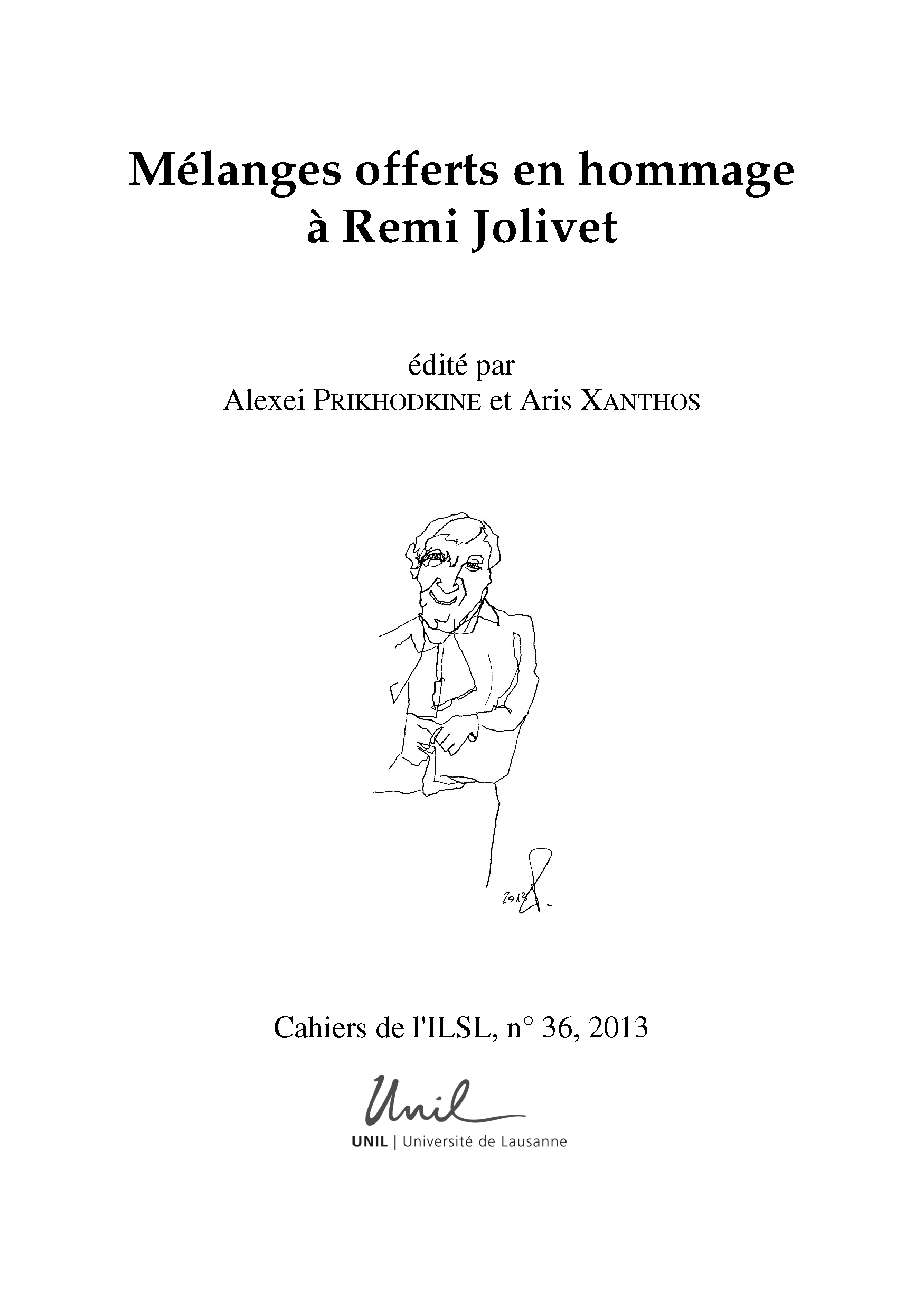Résumé
Dans les noms thématiques des langues classiques, le paradigme du pluriel renferme des formes analogiques: le nominatif en grec et en latin, le génitif en latin. Leur histoire est plus complexe que ne l'admet l'enseignement traditionnel. Si, comme on le pense, le nominatif pl. se conforme au modèle pronominal, pour autant l'analogie ne s'exerce pas directement du pronom au nom, mais par l'intermédiaire de l'adjectif. De même, l'adjectif sert de relais dans la "pronominalisation" du génitif pl. Cette médiation se déduit d'indices internes et de la comparaison avec les langues germaniques. Une troisième forme casuelle analogique se rencontre occasionnellement au datif-ablatif pl. des noms latins en -ā-. Non totalement étrangère au pronom et à l'adjectif, cette innovation concerne d'abord une classe de substantifs et ne se conçoit que dans un contexte particulier.

Cette œuvre est sous licence Creative Commons Attribution 4.0 International.
